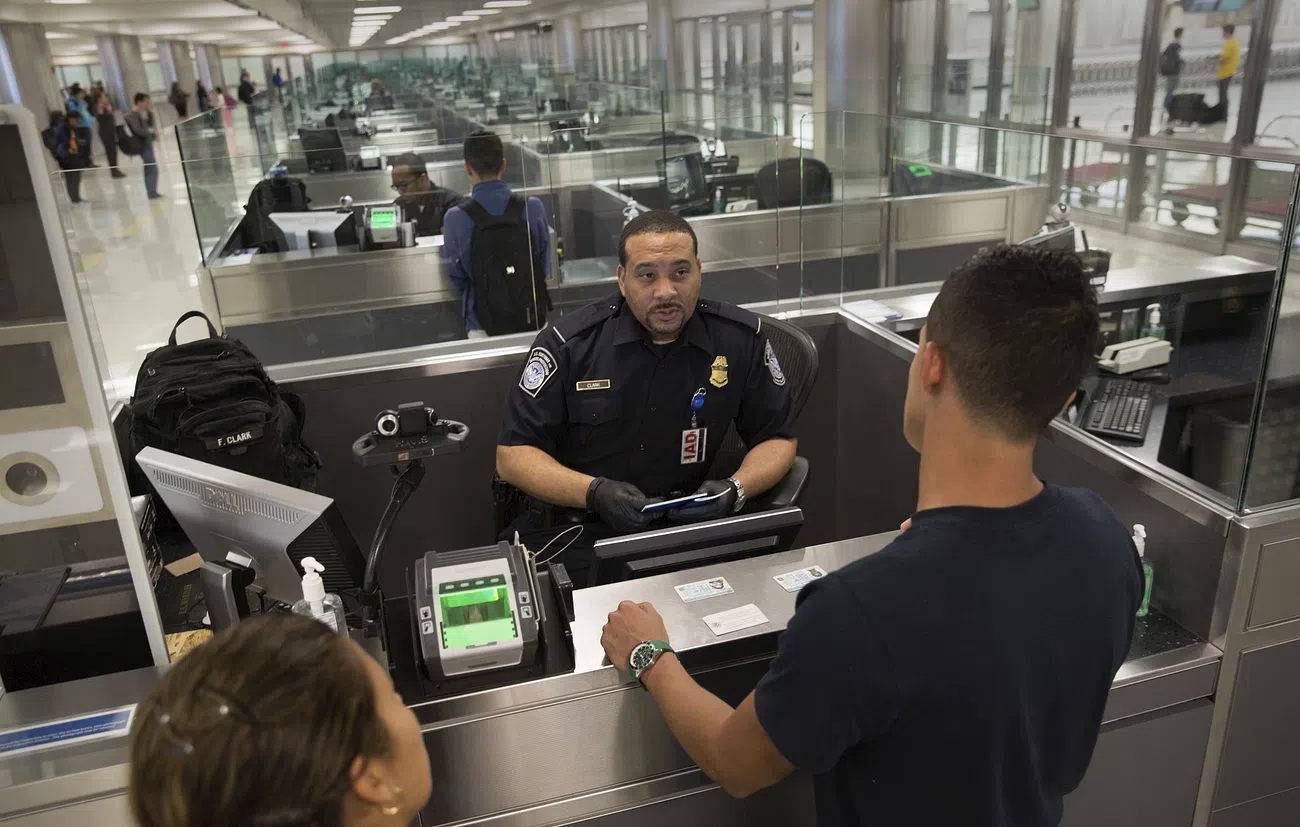U.S. authorities want to query fingerprints and facial images in a total of 40 states, most of them in Europe. In a twist, the Commission is putting itself at the forefront of talks about this so-called EBSP.
A total of 40 countries currently participate in the U.S. government’s Visa Waiver Program (VWP). Washington thus guarantees that citizens of the countries concerned may enter the country for business or tourism purposes for a maximum of three months without a visa. The arrangement is reciprocal, with U.S. citizens also able to visit the 40 countries visa-free. Among the VWP participants are almost all Schengen countries.
Now, a tightening of the program looms: the U.S. government is demanding that countries participating in the VWP grant access to their police biometric databases as part of an Enhanced Border Security Partnership (EBSP). U.S. border and police authorities are to be allowed to query fingerprints and facial images in information systems of 24 Schengen states in return. Such direct access from abroad is unusual even among friendly secret services.
It is not the first such requirement for VWP countries. In 2006, the U.S. government already mandated that only countries issuing biometric passports could participate. In 2008, U.S. authorities introduced the mandatory ESTA system to pre-announce border crossings. A decade later, all VWP countries were required to sign Preventing and Combating Serious Crime (PCSC) for their criminal police forces.
Controversy over required “partnership”
In the EU, the required “partnership” for the release of biometric data has been causing controversy for more than a year. In February 2022, the US government informed some VWP countries about the plans for the first time. According to this, it is supposed to be a bilateral agreement with each of the governments. If they do not agree to the opening of their databases, they will face ejection from the U.S. visa-free travel program from 2027.
EU visa policy has been part of the so-called Schengen acquis since the 1997 Treaty of Amsterdam. Corresponding agreements with other governments must therefore apply equally to all Schengen states. The implementation of and compliance with visa-free travel is monitored by the EU Commission, which can therefore also initiate infringement proceedings. Actually, Brussels should also take action against the U.S. government: Citizens of Bulgaria, Romania and Cyprus continue to be denied visa-free travel to the U.S., which means that the three countries are being deliberately discriminated against.
Instead of reprimanding the U.S. government for the lack of validity of the visa-free regime for three Schengen states and therefore putting the talks about the coupled EBSP on hold, the Commission is actually pushing it forward. Brussels is taking a “pragmatic approach” to this by treating the EBSP as a “dissociate information exchange from issues linked to visa policy”. This is according to a document published by the British civil rights organization Statewatch.
Shaky legal foundation
Since September 2022, members of the Commission have been discussing “technical details” in a specially established working group, including on “legal and policy implications”. The decoupling of the EBSP from the VWP, constructed by the Commission specifically for these discussions, rests on a shaky legal foundation. This is also the view of the Council’s Legal Service, which is demanding clarity on this from the Commission so that it can subsequently draw up a legal opinion on the matter.
In fact, the Commission could officially negotiate with the U.S. government on the EBSP – but it would first have to be asked to do so by the Council. Under the EU Treaties, the Commission can submit a proposal for such a Council decision. But no such mandate exists for the EBSP, nor is it currently planned.
Now the Commission is preparing a study “to assess the feasibility of information exchange between the EU and the US for the purpose of enhanced border management”. So says the answer to a parliamentary question by MEP Cornelia Ernst. Among other things, it seeks to examine which data protection regulations would apply to U.S. authorities, including, for example, the General Data Protection Regulation and the EU Police Directive.
German and French government have doubts
The Swedish Council presidency had sent a list of questions on the planned feasibility study to the member states, which was answered by at least eight governments. There is also dissent in the answers to this paper, as a Freedom of Information request revealed. Some Schengen states, for example, are pleased with the Commission’s coordination. Others question the Brussels-constructed “decoupling” of the EBSP from EU-US visa policy.
Among the doubters, along with the government in France, is Germany. In its response to questions from the Swedish presidency, the German delegation asks for information on the Commission’s “pragmatic approach.” The German government wants to know whether the “decoupling” of the EBSP talks from the VWP was intentional on the part of the U.S. government, or whether the Commission is pushing this.
It is also questionable to what extent the “partnership” in the EBSP is based on full reciprocity, as it is also guaranteed in the VWP. The forces responsible for border security in the 40 VWP members should therefore have access to all fingerprints and facial images of U.S. citizens collected by the police by 2027 at the latest.
Expansion of EU-US data exchange looms
The purpose of data sharing in the EBSP is stated to be “border security.” However, the planned bilateral agreements with the VWP states could go far beyond that. This is because the competent authority on the U.S. side would be the Department of Homeland Security, which intends to use the biometric data for such purposes as reviewing asylum applications.
For the first time, the document published at Statewatch now reveals that the EBSP could be implemented under the existing PCSC agreements. If so, access to fingerprints and facial images of EU nationals would likely also be used to prevent and combat serious crime.
Europol is also working on data sharing among criminal police. Together with the U.S. Department of Homeland Security, the EU police agency wants to test the mutual exchange of data on refusals of entry in a pilot project. It is planned that this will affect persons suspected of terrorism.





Leave a Reply